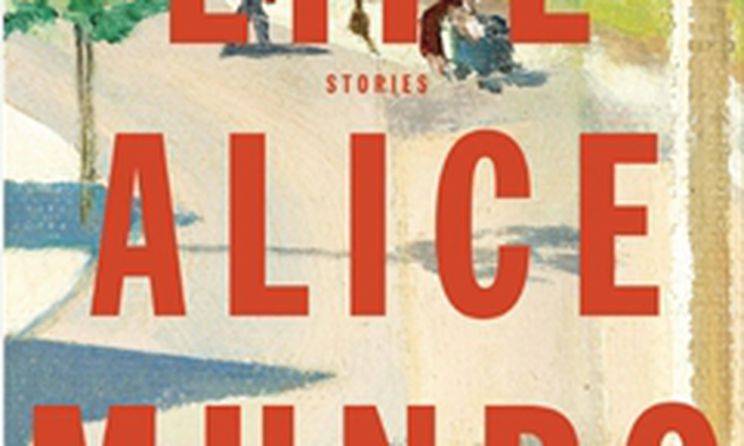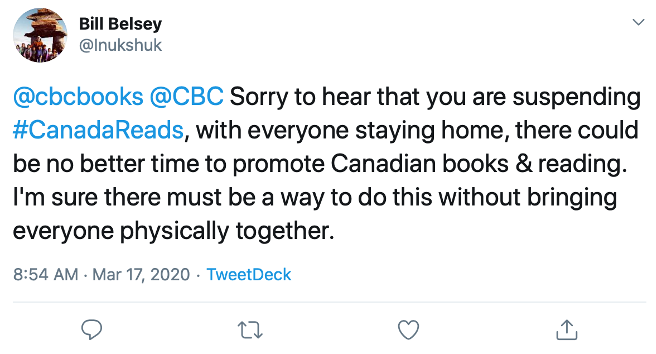In response to the 2020 season of Canada Reads, many members of the CBC’s Canada Reads Facebook group expressed displeasure and disappointment with the 2020 panel—and, in particular, with the behaviour of the female panellists.
The gender divide in Canada Reads 2020

For the 2020 season, host Ali Hassan was joined in studio by Kaniehtiio Horn (defending Son of a Trickster by Eden Robinson), Akil Augustine (defending Radicalized by Cory Doctorow), and Amanda Brugel (defending We Have Always Been Here by Samra Habib); George Canyon (defending From the Ashes by Jesse Thistle) and Alayna Fender (defending Small Game Hunting at the Local Coward Gun Club by Megan Gail Coles) joined via videoconferencing. Throughout the debate, there was significant tension between the panellists and particularly between Akil and Amanda—and it is this tension, and the responses from the female panellists over the course of the debates, that displeased many of the Facebook group members.
In just one of many similar comment threads, user Linda Evans highlighted the panellists’ lack of proper debate skills. She asked if there are “communication coaches on hand to disrupt the counterproductive patterns that are spoiling the conversation.”
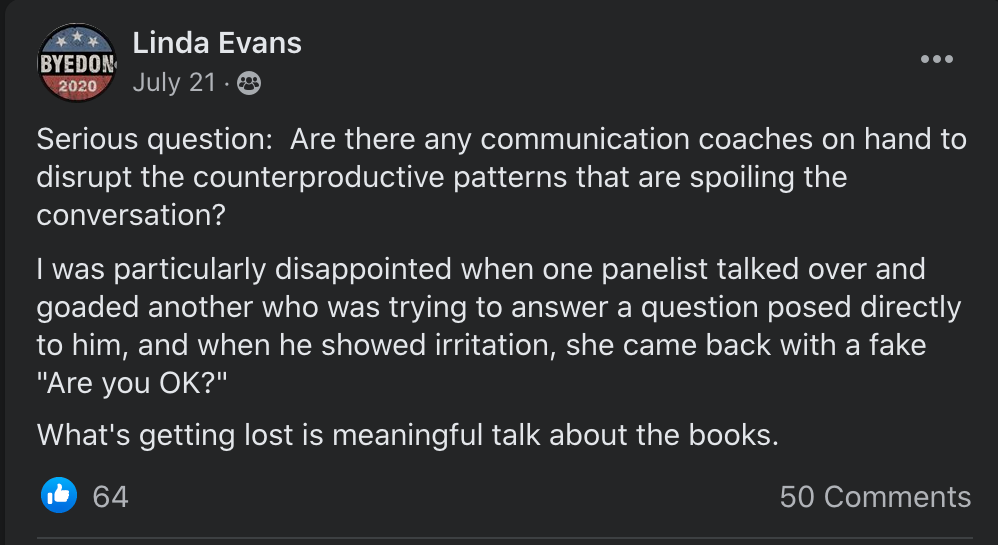
Although she doesn’t directly mention gender in her post, Linda’s response is gendered. In the second episode, Akil gets worked up over the other panellists’ critiques of his word choice when discussing Small Game Hunting at the Local Coward Gun Club and says it’s evident that author Megan Coles has an “ax to grind” regarding her representation of men; in response, Amanda calmly asks Akil if he is okay. For Linda, then, it appears that showing “irritation” is an acceptable aspect of debate, but responding to that irritation—especially if you are female—is not.
In another comment thread, Zeynep Ozkok expressed disappointment with From the Ashes being voted off on day two and discussed the “gender divide” in the panel.
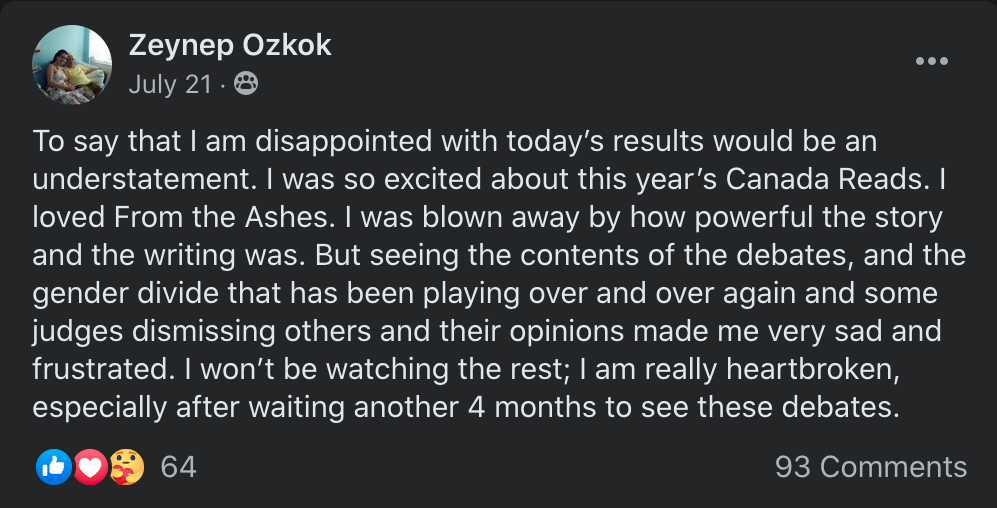
In response to Zeynep’s post, users like Dan Smith openly framed their complaints about the 2020 panel in terms of gender and the “feminist brigade.” Dan’s comments assume that instead of being able to make decisions and value judgements based on their critical thinking and reading skills, the women would simply “ban (sic) together” and use words like “mansplain” (used by Amanda to describe Akil’s actions in the first episode) to vote off the books defended by men.
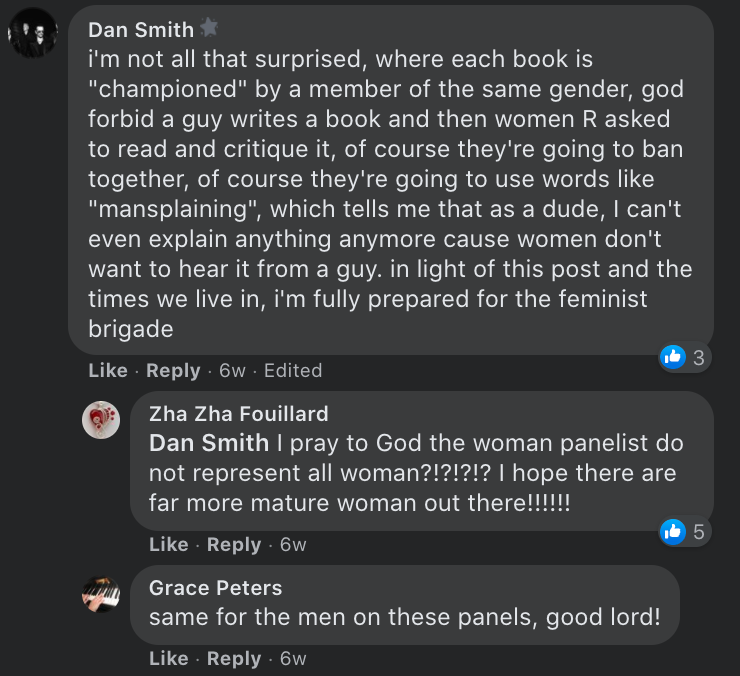
What this suggests is that when the female panellists speak out against or challenge the male panellists, they are viewed by the audience as disrupting the debate and being inappropriate instead of debating problematic viewpoints or questioning a line of argument.
However, not all of the Facebook group members support these ideas. For example, Yvonne Mury posted on July 21 that she was disappointed specifically with the “unprofessional conduct” of “the female panel members.”
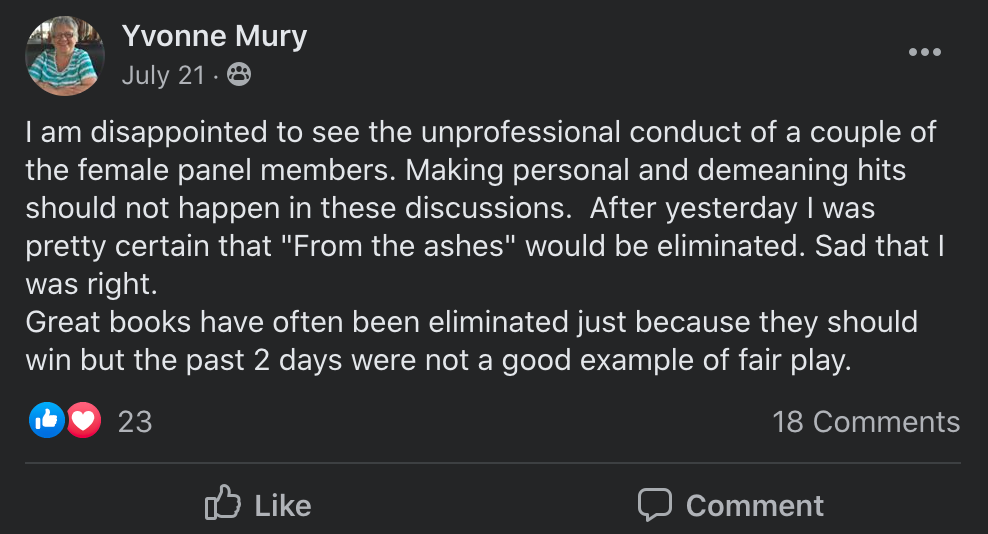
In response to this post, Lara Margaret Marjerrison brought up the moments in which the male panellists displayed inappropriate behaviour. In particular, Lara addressed George Canyon’s remark to the female panellists, “Girls, girls, girls,” and Akil’s “not all men” rhetoric.
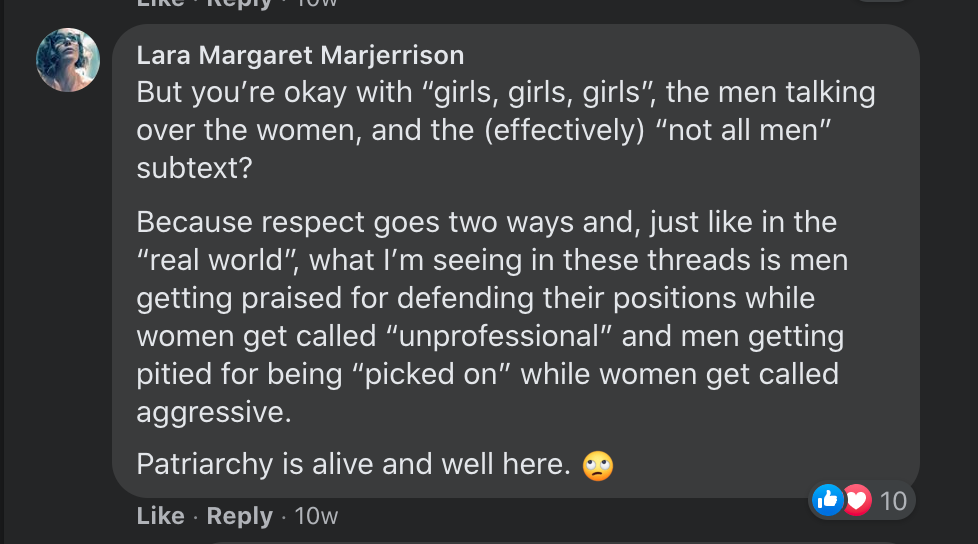
In response to a post sharing Sharon Bala’s blog post on Canada Reads 2020, titled “Girls, girls, girls” after George’s remark, Aileen Lord commented that this year’s debate was more about the defenders than the books.

Anne Tannis Simonen and Fiona Louise disagreed with Aileen, and Anne even framed this year of Canada Reads as the program’s #MeToo moment.
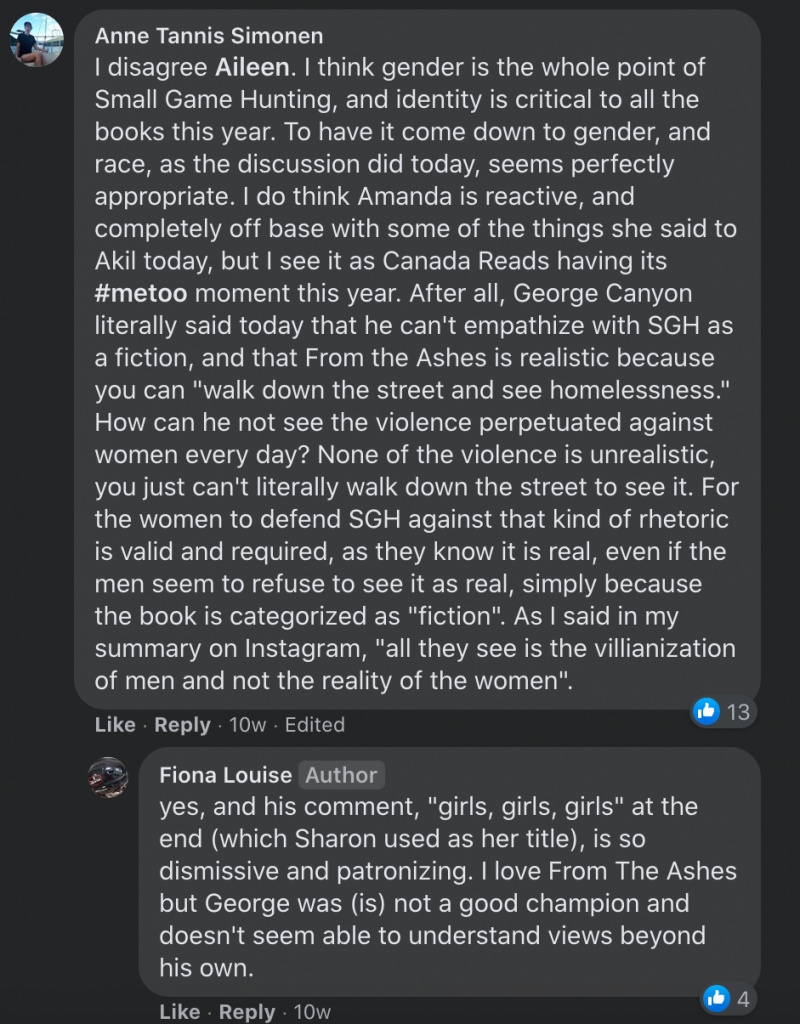
From these examples, we can clearly see disconcerting discourse on Facebook regarding gender and the panellists’ conduct on the program—but we can also see other Facebook users questioning this discourse and offering counterpoints. These examples indicate a clear divide in the ways in which the 2020 panellists have been interpreted by Canadians—a divide that is deeply gendered—and may point to a desire from some of the Facebook group members to stop using celebrity panellists and use panellists with better debating skills and some kind of literary authority.
